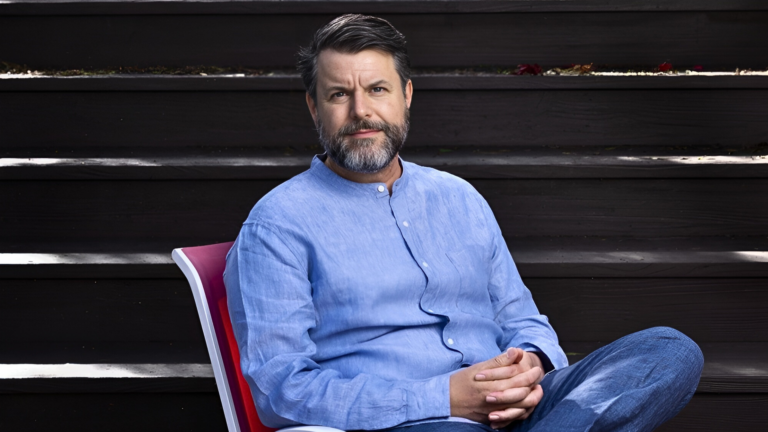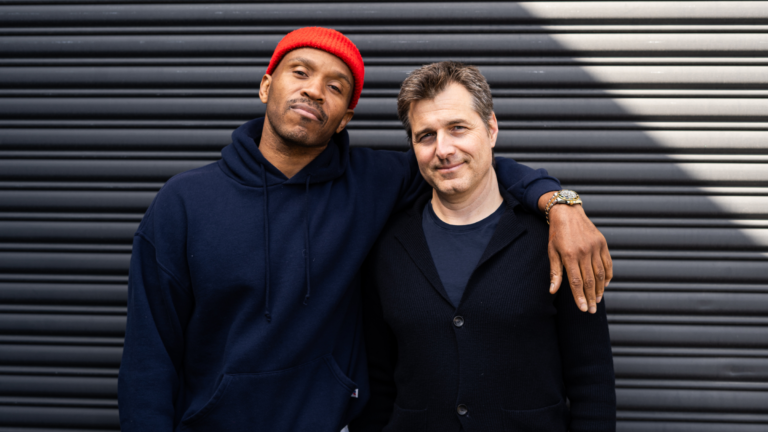This week’s conversation is with Dr. Richard Wrangham, a research professor at Harvard and a biological anthropologist who is best known for his pioneering work on the evolution of human behavior.
I wanted to have Richard on after reading his latest book, The Goodness Paradox, which explores the relationship between virtue and violence, and why humans can be both the nicest and the nastiest of species. It’s a fascinating phenomenon.
Since 1987, Richard has studied the behaviors of wild chimpanzees and other primates, which he has eloquently linked to the roles of warfare, social behavior, and nutrition in human evolution. His research has fundamentally changed our understanding of human evolution & behavior, and it was fascinating to learn from him in this conversation.
You might wonder how a talk about humanity’s virtue and violence is relevant to thinking about human performance. Well, understanding humanity’s roots is fundamental to better understanding how we can reach our potential. There are major forces that guide our daily decisions and actions. Some of them come from our culture, our families, or our friends. Some of them are biological or for the purposes of this conversation – evolutionary.
Understanding the stuff that makes us is key to better understanding our own potential, the potential of those around us, and perhaps even the potential for humankind. This was a really interesting conversation that took us places I didn’t think we’d go. I hope you enjoy it as much as I did.
“Natural selection has favored the brute in human nature at the same time as it has favored the lamb. And the really fun story now is working out why those two things happened.”
In This Episode:
Is violence inevitable in our society?
No, violence is not inevitable because our violence is mostly proactive. And proactive violence in animals and humans always depends on the perceived ability to carry it out safely. So if we have safe conditions, people will not be violent.
Why study violence and virtue in humans?
A little more than a hundred years ago, Darwin produced the theory of evolution by natural selection, which revolutionized the way we can understand the natural world. And exactly a hundred years after he did it in 1859, there was quite a lot being published about the theory of evolution. And the astonishing thing was that it had very little to say about human behavior because what had happened in the first century was that really, the goal and the effort was put into establishing whether evolution was true as a theory, could natural selection really account for evolutionary change, and something about the anatomical changes, but very little about human nature itself.
The questions he is searching to answer
Natural selection has favored the brute in human nature at the same time as it has favored the lamb. And the really fun story now is working out why those two things happened. How did it happen and what does it mean to talk about one kind of aggression being relatively elevated in the human species and another kind of aggression being relatively down regulated in the human species? How can these two things live alongside each other? What sense does it make that we have this bifurcation in our social tendencies between, on the one hand being given to quite exceptional nastiness? I mean, Hobbes is right, we have that inherent tendency, but at the same time, quite exceptional niceness. Rousseau was right too. They were both right, they were both wrong.
How does this relate to sport?
The thing that I’m always impressed by with sports is that the goal very often is to get everybody working together and sinking their own individual ego into this team’s benefit, because if you are too keen on showing off or promoting your own statistics or whatever it is, then that tends to undermine team success. And what evolutionary theory now tells us very clearly is that the tendency for individuals to be selfish is very strong. That’s the core basis of the evolution of behavior, looking after your own interests. And it takes something special to get to the point where you are willing to sink your own ego to the point of really putting the team interest first. And it’s with that dynamic in mind that my gut reaction to your question is that it seems to me that the best coaches are the ones who find ways to motivate people to think of the team first.
Morality is the differentiating factor between humans and other species
I think the huge story about human society that is different from animal society is the evolution of morality. And when I think of morality, what I mean is the evolution of a sense of what’s right and what’s wrong. Animals don’t have that. Animals just do what suits them. And humans do what suits them, but then they also have this sense of morality which says, “Wait a minute, some things are right and some things are wrong.” We now have a story of the evolution of morality that means that it is part of human nature. It is not simply the result of going to church and being instructed by one’s parents and teachers, but that we’re all born ready to absorb and implement a system of morality. And we have a very good reason for it.
The historical meaning of an Alpha Male
A male [or person] who can tyrannize everybody else in the group through his sheer physical strength. We jokingly talk about alpha males nowadays, “Donald Trump is an alpha male,” dot, dot, dot, and you certainly get individuals who try and bully others, but you don’t get individuals who try and bully others through their own personal physical strength. They do it by coalitions, by getting together a group of others, like-minded people, and then using their coalitionary force to bully others. But what happened about 300,000 years ago was that humans developed the ability, and I’m sure it was because their language became sufficiently sophisticated at this time, to be able to get together in small groups and say, “If you and I just work together with Bert and Joe and Bill and Phil, we can take out that bastard who’s been taking our women and taking our food and kicking sand in our faces.”
Reactive aggression
Reactive aggression is emotional aggression. It’s where you are confronted by a threat and you respond spontaneously. There’s very little cognitive processing that’s going on, it’s just going straight into your amygdala and boom, your aggressive circuit lights up as if you were a non-human primate or a rodent. So this is what happens when a man comes back early to his home and finds his wife in bed with another man. He doesn’t stop to think about the consequences, he just reacts emotionally. And if you happen to live in a country with lots of guns, that’s when the emotional reaction can be lethal. If you don’t have lots of guns around, then it’s just more likely to get into a fight. Humans have astonishingly low propensity for reactive aggression compared to other animals… the question that I’m fascinated by is why is it that humans are so reduced in reactive aggression compared to other primates and other animals?
Social approval
Once you have a group of males that can predictably kill the alpha, then they can impose their collective will on the group as a whole. And that means that any individual who does not have the interests of the group at heart, or more accurately the interests of the male group that has the power of life and death over everybody else at heart, anybody who is showing signs of individual selfishness, self-centeredness, willingness to compete against the male group, any non-conformist tendencies, it puts them in a really dangerous position. Because the individuals that they are annoying have that power of life and death. So I think our need for social approval is built into us emotionally as a gut reaction that protects us from the danger of being seen as a witch, as an outsider who is competing, as somebody who might try and set up some sort of independent power competition. And those are the people who will get killed.
The fear of ostracism
I love these little experiments that were done by a guy called Kip Williams involving getting people to play Frisbee with strangers. And within a few minutes of playing Frisbee with strangers, if they were then excluded, they would feel just desperately hurt, are totally unreasonable, really out of proportion. I mean, they didn’t know these people five minutes ago, they had not had any kind of collaboration with them, and yet to be excluded, even under these totally trivial circumstances, caused deep social pain. And so yes, I think that what the human emotional system is designed to do is to steer individuals away from the danger of ostracism. Ostracism is the beginning of a process that, in prehistoric times, and even, in some ways, more recently, leads to something super, super dangerous.
Eliminating all males?
It seems to me that the propensity for violence that is found in males is always going to be a very risky feature of a future human species. I don’t see that any kind of degree of educational change is going to change the fact that even though humans are capable of living incredibly tolerantly, circumstances will arise when proactive aggression is used. In other words, I think that if we were really going to be positive about the human future, we’d have to think about eliminating males. And eliminating sounds a bit harsh. But the prospect for a stable human future, seems to me to be greatest if somehow the world could agree that the breeding would be carried on only by females and they would have no sons. So this does not involve the prospect of killing males, just consigning the Y chromosome to test tubes, rather like the smallpox virus.
Social cage
As a species, we have grown up to need to be in a social cage. We need to be because there’s no alternative. We have to accept it. That social cage is what means that we are a part of society. If we don’t accept the limits or morality of the norms that are given to us in our society, then what happens? We end up going to prison. We’ll label psychopaths. Maybe if we live in some countries, we’ll actually be executed. But nowadays, mostly we’ll just go to prison. Every individual born lives in a social cage in a way that is not true of other animals. Because all of our lives, our behavior is subject to scrutiny by others in a way that means that if you start behaving in a way contravening the local Moras, you become an outsider. And to become an outsider is ultimately incredibly risky. So in America, there’s a lot of people saying, we want to be free. Don’t step on us. We want to be free. It’s a fantasy. No one is free. No one is free in the same way that a squirrel is or a chimpanzee or an elephant. We are all subject to our local rules. The real question is which local rules are we willing to live by?


